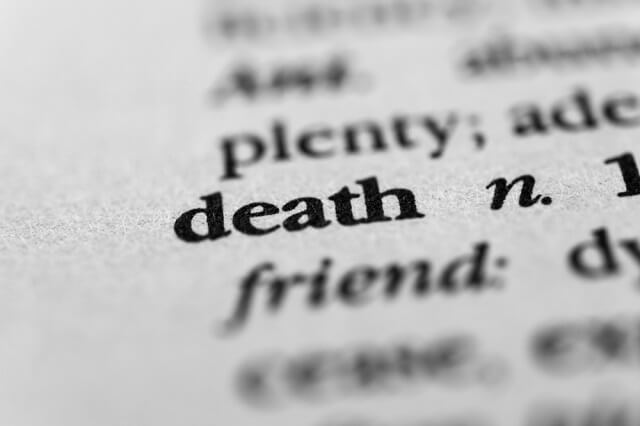
Your loved one suffered serious, life-threatening injuries in an accident. While you cared for them and they tried to recover, they lost their life to that injury.
Now, you find yourself struggling to pay the medical bills, make up for lost wages, and deal with the loss of a loved one all at the same time. You had discussed with your injured family member the idea of filing a lawsuit against the party who caused the accident, but they passed before you had the time to explore it further.
When the victim has died, family members still have the right to hold the party responsible through a wrongful death action. However, the rules and procedures for filing this claim vary significantly in comparison to a traditional injury case. Therefore, it is in your best interest to speak with an attorney to explore your options and ensure you follow the proper steps before you attempt to seek compensation.
What Is a Wrongful Death Case and How Does It Apply to Washington State Residents?
A case qualifying as a “wrongful death” lawsuit means that the death of the individual was caused by another party’s negligence, default, or wrongful act.
It is, in many ways, a personal injury claim that would have been filed had the deceased survived and recovered from their injuries. However, in this case, the injured party can no longer serve as the plaintiff. While they cannot file an injury claim themselves, individual family members can file a lawsuit in court on their behalf.
These claims allow family members to recover compensation from losses that stem from the accident and death of their loved one. The claim itself goes through civil court. Your case can parallel a criminal case if the death involves illegal conduct.
The Key Differences of a Wrongful Death Case and Criminal Case
You might think that if there is a criminal case pending, there is no need to file a wrongful death case. The criminal case does help family members seek justice against the person that took the life of a loved one prematurely. However, criminal cases are not designed to compensate families for their monetary losses. Furthermore, they are overseen by the state, and family members do not have much say in how the case moves forward.
A civil case focuses on liability and damages. There is no requirement to prove guilt beyond a reasonable doubt. Instead, only the preponderance of the evidence must point to the defendant’s responsibility. If the jury finds in favor of the plaintiff, monetary awards (compensation) are given as a result.
The Law Limits Who Can File the Wrongful Death Suit
You know that your loved one was planning to file an injury claim, and had they survived they would be named the plaintiff. Unfortunately, once they pass away, the law imposes strict rules about who can file the wrongful death suit; that suit is brought on behalf of the estate rather than the individual.
Only real parties of interest can file a wrongful death suit, which the law defines as:
- A spouse or registered and recognized domestic partner of the deceased
- The child or stepchild of the deceased
If no spouse or children are left behind, parents and siblings of the dead can then proceed with filing a claim.
Time Is a Factor in a Wrongful Death Suit
While you have the right to file a suit on behalf of your loved one, the law limits how long you have to do so. In Washington, you must submit your wrongful death suit within three years of the date of the incident that caused the death. However, you are strongly advised to start this process much sooner.
The longer you wait, the harder it will be to collect evidence, locate witnesses, and present a strong case in court.
The Damages (Compensation) Changes in a Wrongful Death Lawsuit
When you and your loved one discussed the idea of an injury case, you were planning to file that lawsuit for medical expenses, lost wages, and possibly the pain and suffering they experienced. When you file a wrongful death lawsuit, the compensation changes.
Instead of one part receiving the compensation, the estate gets it. Then, the compensation is distributed per the estate plan and laws.
The damages you might receive in a wrongful death lawsuit include:
- Medical Expenses: Any medical expenses directly related to the injury that caused their death can be compensated in a wrongful death claim.
- Funeral and Burial Expenses: These expenses, within reason, are compensable. It may include funeral home charges, burial services, or cremation fees.
- Lost Wages: The wages your loved one lost while they tried to recover from their injury is compensable along with the income that they would have earned had they not been injured or died from their injuries.
- Loss of Care and Companionship: Furthermore, the law allows for loved ones to request compensation for their loss of companionship, love, care, and intangible benefits that their family member would have provided had they not passed away.
The damages allowed are dictated by the party filing the claim. For example, the damages a spouse can request would differ dramatically from a surviving sibling. A spouse would be able to request loss of companionship damages, but a sibling could not. Furthermore, lost wages might not apply to siblings filing a claim compared to surviving spouses or children.
It Is Best to Consult a Wrongful Death Attorney First
While you and your loved one had decided to file a wrongful death claim before their passing, you still need to consult with an attorney to make sure you have a claim. We have successfully litigated complex wrongful death cases with multi-million dollar settlements in numerous Counties throughout Washington State: King, Kitsap, Pierce, Skagit, Snohomish, Spokane, Thurston, and Whatcom.
The advocates at Brett McCandlis Brown & Conner, PLLC, understand what you are going through, and our attorneys would like to help. We meet with you for a free consultation to discuss your case, inform you of your rights, and get the claim process started if you do have a case.
Speak with us today at no risk to you by scheduling a free consultation at (360) 714-0900 or request more information online.


